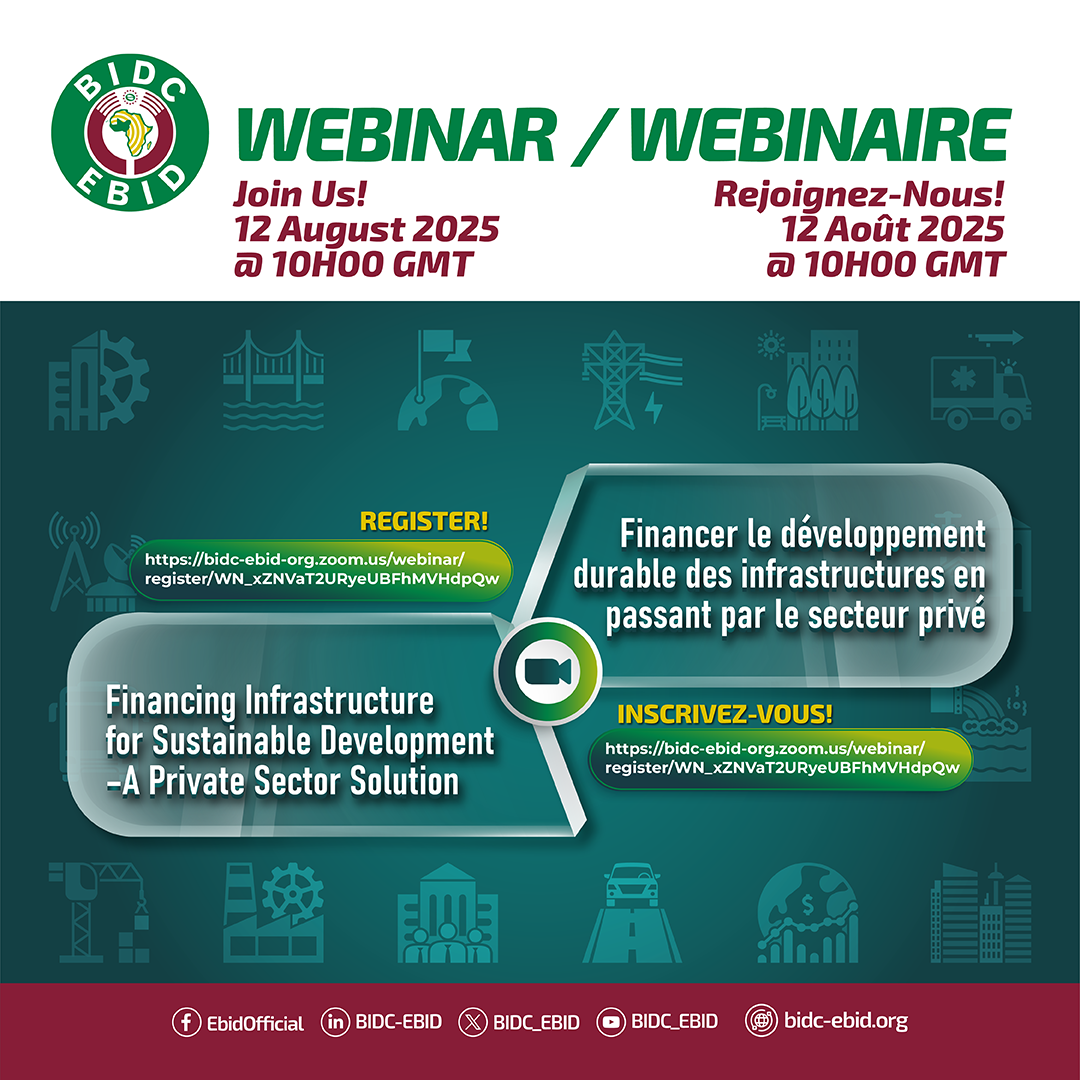
Webinar: Financing Infrastructure for Sustainable Development – A Private Sector Solution
Introduction
With the adoption of the Sustainable Development Goals (SDGs), nearly 190 countries, representing more than 98% of greenhouse gas emitters, agreed on a global strategy to combat climate change. Each country subsequently presented a strategy aimed at putting its economy on a low-carbon growth path while financing more sustainable initiatives.
In 2018, the Global Infrastructure Hub estimated that global infrastructure needs would reach USD 94 trillion by 2040, with an investment gap of USD 15 trillion. The value of existing infrastructure worldwide stood at USD 50 trillion in 2015, with annual investment ranging between USD 2.5 and 3 trillion. Annual investment in infrastructure represents only half of the amount needed to meet the average annual demand estimated at USD 6 trillion by 2030.
More than 60% of this financing gap is expected to be concentrated in middle-income countries – those with a per capita income between USD 1,045 and USD 12,745 – and more than 50% in the energy sector.
In Africa, the financing gap for sustainable infrastructure development has been estimated at USD 3.3 trillion, including infrastructure needed to achieve the SDGs. Domestic capital markets will play a key role in financing investments, particularly banks, pension funds, and insurance companies, which are growing rapidly and hold over 80% of institutional assets under management in middle-income countries.
The financing gap for sustainable infrastructure development is largely due to institutional failures and investors’ lack of familiarity with greener technologies and projects. Governments have always played a central role, as infrastructure has strong public characteristics, generally requires large-scale capital mobilization, and is highly sensitive to local policies. However, the scale of infrastructure spending needed over the next 15 years, combined with widespread public sector budget constraints, means that private financing will play an increasingly important role.
Theme
The theme of the webinar is “Financing Sustainable Infrastructure Development through the Private Sector.”
The focus will be on the strategies that DFIs should implement to mobilize financial resources via the private sector to finance sustainable infrastructure development. The discussions will address the role of the private sector in sustainable infrastructure development as well as the role of DFIs and other financial institutions.
To build sustainable infrastructure at the required scale, all types of investors must increase both the quantity and quality of their financing, particularly the private sector. Currently, private investments account for up to half of total infrastructure spending, or between USD 1,000 and 1,500 billion per year; 65 to 75% of these investments come from businesses, and the rest from institutional investors such as private equity and pension funds. Private institutional investors could bridge up to half of the financing gap, provided they can identify bankable and sustainable projects.
Objective
This webinar aims to foster in-depth discussions on how to mobilize private sector financing for sustainable infrastructure development.
Date and Venue
The webinar will take place on August 12, 2025, on Zoom.
Format
The program will take the form of a two-hour debate via Zoom to allow for interpretation and a webinar format. It will include a keynote speaker and panelists composed of experts from EBID and partner institutions, who will provide in-depth insights into the topic.
Key stakeholders and strategic partners of the Bank will be invited to participate in the webinar. This will be a recorded session that will be streamed live on the Bank’s various digital platforms to allow the public to follow the event in real time.
A moderator will guide the discussions. The moderator will introduce the webinar theme and present the panelists. For each of the sessions detailed below, each panelist will have 5 minutes to present their perspective, followed by a Q&A session at the end of each session.
Program
-
Introduction (3 minutes)
-
Keynote Address (5 minutes)
-
Session 01
Topic: The role of regional economic blocs and DFIs in facilitating the mobilization of financing for sustainable infrastructure development.
Duration: 20 minutes
Q&A Session: 15 minutes -
Session 02
Topic: Encouraging the private sector to invest sufficiently in the sustainable development of the infrastructure sector.
Duration: 20 minutes
Q&A Session: 15 minutes -
Session 03
Topic: Maximizing efforts to achieve the SDGs, including climate goals, by accelerating the flow of private capital into sustainable infrastructure while building and maintaining the urban, transport, water, and energy systems the subregion needs.
Duration: 20 minutes
Q&A Session: 15 minutes -
Closing Remarks (3 minutes)
Conclusion
The webinar will focus on mobilizing the private sector to finance the infrastructure sector for sustainable development and will serve as a platform for exchange, where panelists will share their knowledge and understanding of the roles of the private sector and DFIs in financing sustainable socio-economic growth.


